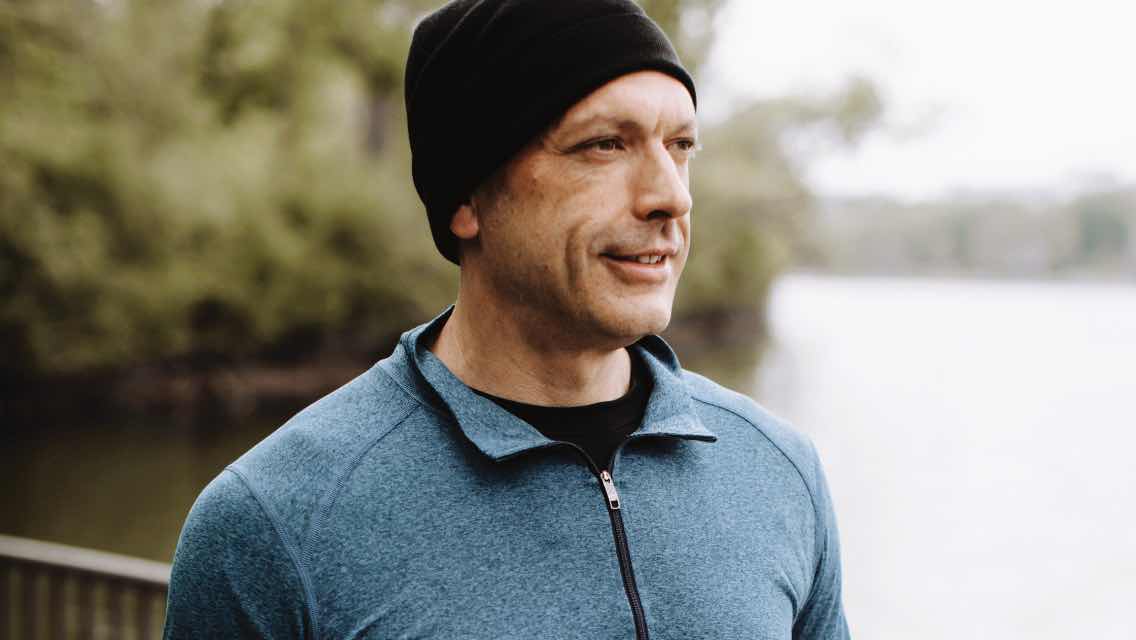Most years, January is the time when many of us are filled with optimism around the self-improvement goals we hope to achieve in the new year. But this year is unlike any other. The ongoing pandemic has brought more urgent attention to our health status, leading many of us to want to make change without waiting for the new year.
Whether you hope to improve your immunity, break unhealthy habits that have developed from increased stress and time at home, or just commit to a healthier lifestyle for the benefit of your well-being, there’s no need to wait months to make that happen.
We do, however, understand that it can be tough to go after and stick with new goals during the holiday season. There are a number of reasons we fall off the bandwagon (we’ll get into a few of them below), yet with the right approach, support, and resources, many of them can be avoided. That’s why many people find success when they participate in structured, time-bound health programs or challenges, as they tend to combine all three of those factors.
We gathered a group of experts from Life Time to explain some of the common obstacles that prevent us from reaching our goals — and how a challenge can be a supportive tool for staying on track. They all either coach or work with individuals in the Life Time 60day Challenge, helping participants to navigate hurdles and reach their personal ambitions.
Expert panelists:
- Ryan Lew, spring 2019 60day team member winner, personal trainer, and nutrition coach at Life Time in Schaumburg, Ill.
- Andrew McGovern, personal training manager at Life Time in Pickerington, Ohio
- Sara Opara, personal training lead assistant manager, and small group training and nutrition coach at Life Time in Plymouth, Minn.
Obstacle No. 1: You take on too much or go after a plan that’s too strict.
Our enthusiasm for change can often lead us to dramatically alter our daily lifestyle, whether that’s adopting too many new behaviors, eliminating too many existing ones — or a combination of the two. Making a number of significant changes simultaneously may be doable in the short-term, but it’s rarely sustainable for a long period of time due to the restrictive nature of the new boundaries. This can leave you feeling defeated or deprived.
How a challenge can help:
A challenge typically encourages focusing on a few small behavior changes and building on them as you go through the program so they start to become habitual.
“I see more success from people who commit to small changes, such as coming to the health club twice per week or drinking an extra bottle of water each day,” says Opara. “By concentrating on forming the habits that’ll change your lifestyle, you’ll be more likely to maintain results in the long run.”
Your coach can also offer guidance on whether you should be adding in or removing behaviors and at what cadence. Often, it’s less challenging to add new, positive behaviors first — such as eating more veggies — then focus on eliminating negative habits after.
Obstacle No. 2: There’s no one holding you accountable.
As a team of one, it’s easy to come up with excuses for why you can’t work out on a particular morning, or to rationalize choosing the less-nutritious option for lunch — especially when work, school, kids, and other responsibilities busy up your days. While you certainly don’t need to be perfect at all times, the more leeway you give yourself, the more likely it is you’ll fall off a plan.
How a challenge can help:
The structured team format of a challenge means you know what you — and your fellow participants — are supposed to focus on each day or week, eliminating any internal debates about what to do. You’ll also have check-ins with a coach and be part of a group of people who are working toward similar goals, which add layers of accountability.
Note that though they’re structured, plans can flex to fit your schedule and lifestyle. For example, you might meal prep on Mondays rather than Sundays because your kids have sports Sunday night, but you don’t skip it altogether because you didn’t feel like going to the grocery store.
Obstacle No. 3: You know what you want to accomplish, but not how to get there.
To achieve a goal, it has to be attached to a systematic, behavior-based approach.
“The problem with setting an open-ended goal — like ‘I want to lose weight,’ for example — is that there’s no clarity on how you’re going to get to your desired outcome,” says Lew. “Start with clearly defining what you want to achieve, then you can work your way backward to formulate what needs to happen, when, and how. This turns your commitment into action steps toward your long-term goal.”
It’s also critical that your approach is realistic for you, and that you consider what specific habits you want to change as you work toward your goal, such as eating a protein-rich breakfast or increasing your daily servings of vegetables.
How a challenge can help:
Making a series of small changes leads to a change in habit, which then results in a lifestyle change — and your ability to maintain a behavior over time. A challenge is designed to lead you through this process.
“As part of a challenge you’ll be educated on the what, how, and why behind achieving whatever your goals are,” says McGovern. “When coupled with structure, support, and accountability, a challenge helps set you up for immediate success and maintainable results.”
Mapping out this course isn’t simple, and figuring out what do to can be mentally overwhelming and demotivating. Your coach can help you craft this habit-by-habit plan — looking at your specific needs and obstacles — empowering you to feel clear, confident, and excited about what you’re working toward rather than uncertain or discouraged.
Our coaches have repeatedly seen that the seemingly simple step of writing down your plan increases your success of sticking with it — it makes it feel more real and serious, and gives you something to follow or turn back to if you ever veer of course.
Obstacle No. 4: You don’t have enough support.
Change is hard, and being solely responsible for your own motivation, accountability, and direction can be a real challenge.
“No one climbs Mount Everest alone,” says McGovern. “We each have our own ‘Mount Everest’ that we aspire to overcome. I always encourage people to enlist the help and support of others when attempting to accomplish a goal for themselves.”
Lew adds, “A support system is huge when it comes to success with wellness. We may have different goals, but we can all share in wanting to enhance our well-being and quality of life.”
How a challenge can help:
You embark on a challenge with a group, allowing you to meet new people (even if just virtually), gain a committed workout buddy or team, and add a source of motivation, all of which can be particularly useful on the days you don’t want to show up — because those will happen. A group can also motivate you to push yourself harder than you may on your own.
As you go through the challenge, you’ll also have a coach who’s in your corner. “When you have a coach who can give you what you need to obtain results it’s an extraordinary advantage in developing improved behaviors,” says McGovern.
Plus, the companionship of a coach and your group can make your experience more enjoyable. Instead of starting a solitary endeavor, you can come to a place you want to be, surrounded by others working toward similar goals.
Obstacle No. 5: You don’t see the results you expect, or any results at all.
Because of what we see on TV, social media, and other media, we often have the perception that dramatic transformations are obtainable in a short period of time. The truth is, there are no quick fixes. And, because health is so individualized, it can be difficult to know what will work best for your body without the guidance of an expert — or some trial and error.
“There is so much information out there around exercise and nutrition — and not all of it is credible,” says Opara. “The personal trainers and nutrition coaches at Life Time are experts in the field and can provide the information you need to get to your goals safely and efficiently.”
How a challenge can help:
Your coach can create a guided, time-based plan for achieving your goals, which helps to set realistic expectations around how long it will take to get there, and about the kinds of results you can expect to see week after week and month after month.
A challenge also builds in ways to measure your progress so you can witness improvements, catch anything that’s not working, and adjust as needed.
We always have the opportunity to go after new healthy-living goals. When we do, it’s best to set ourselves up for success by identifying the areas where we may need assistance.
“Having a solution-based plan and resources proven to drive results while also being part of a community that supports and encourages your success through any obstacles you may encounter along the way — these are all vital factors to pushing yourself harder and longer than you previously thought you were capable of,” says McGovern.




